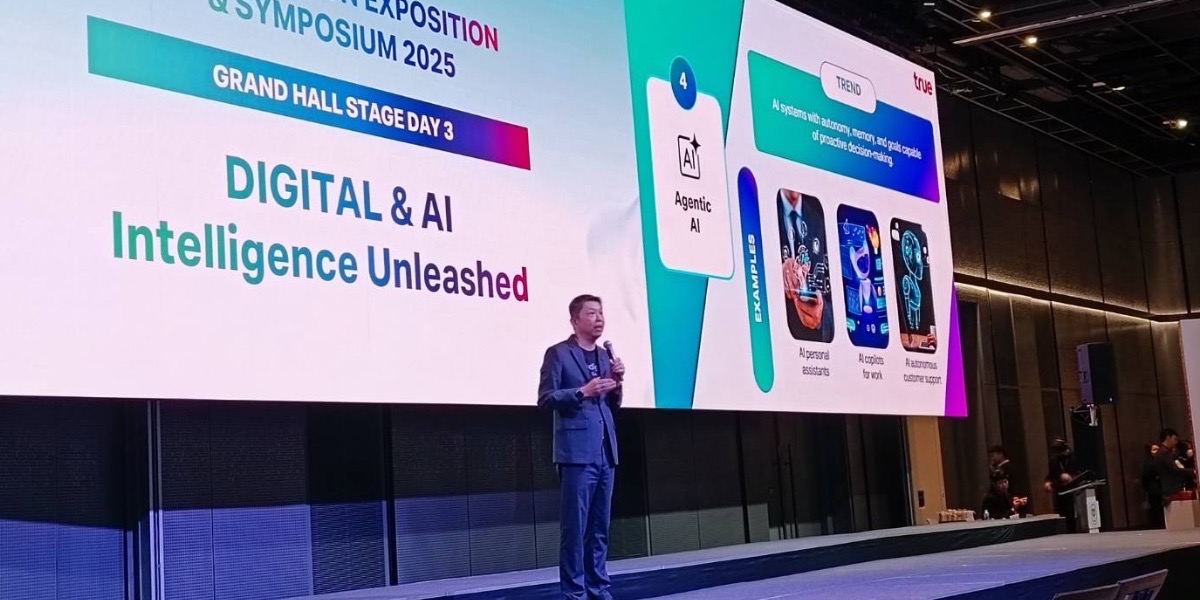Mr. Ekaraj Panjavinin, Chief Digital Officer and Acting Chief Business Officer of True Corporation Public Company Limited (SET: TRUE), delivered a keynote address at the Digital & AI Intelligence Unleash session during the CP Innovation Exposition & Symposium 2025, emphasizing the rapidly increasing and high impact of technology on global industries. He outlined the evolution of innovation, the defining technological forces shaping the next decade, and the critical organizational strategies required for success.
Historically, innovation has progressed from a focus on R&D in the 1990s, to Design Thinking in the 2000s, and then to Agile methodologies in the 2010s. Today, Mr. Panjavinin stressed that modern innovation must rely on three core components: AI-powered, Data integration and Platforms.
Innovation can be categorized into four types, based on the novelty of the technology and its market impact:
- Incremental innovation (e.g., a new Coca-Cola flavour).
- Sustaining innovation (e.g., continuous Apple product updates).
- Radical innovation (e.g., holographic projection).
- Disruptive innovation, the most powerful type. Uber is a prime example, leveraging smartphone technology (GPS and apps) to solve transportation problems globally—without owning a single taxi—fundamentally transforming the industry.
Looking ahead 5–10 years, Mr. Panjavinin identified 10 major technological forces set to transform the global landscape:
- Living Intelligence – integrating digital tools with biotechnology (including brain-computer interfaces and predictive health).
- Action Models – evolving from language models to AI that performs tasks, not just answers.
- Robotic Break Free – enabling robots to operate outside controlled environments (e.g., drone delivery, humanoids powered by advanced platforms).
- Agentic – autonomously managing and executing work.
- Meta Materials – using nanostructures to create drastically improved objects (e.g., stronger wood, thinner lenses).
- Unlikely Alliances – expanding cross-industry collaboration.
- ClimateTech – optimizing clean energy solutions.
- Nuclear Resurgence – deploying small nuclear devices for clean, decades-long power generation.
- Quantum – compressing problem-solving time (e.g., from five years to five minutes) and overcoming AI’s current limitations with higher accuracy.
- Space Economy – leveraging satellites for enhanced telecommunications, including global 4G/5G delivery in space stations.
These shifts are being accelerated by Hyper Convergence, reshaping four key areas:
- Skills – workers must become multi-skilled in both business and technology.
- Technology – innovations now arrive as bundled packages of IoT, 5G, AI, and Blockchain.
- Partnerships – complex challenges increasingly demand cross-industry collaboration.
- Data – competitive advantage depends on who can best aggregate and integrate data for superior insights.
To foster innovation, Mr. Panjavinin urged organizations to take three key actions:
- Enhance foresight and scenario planning.
- Take bold bets by establishing new processes for experimentation.
- Stay adaptive, treating failure not as a loss but as an essential step in learning.
He concluded by emphasizing that Thailand’s expertise, combined with the transformative power of Digital and AI technology, will be vital in driving sustainable development for both industry and the nation.





